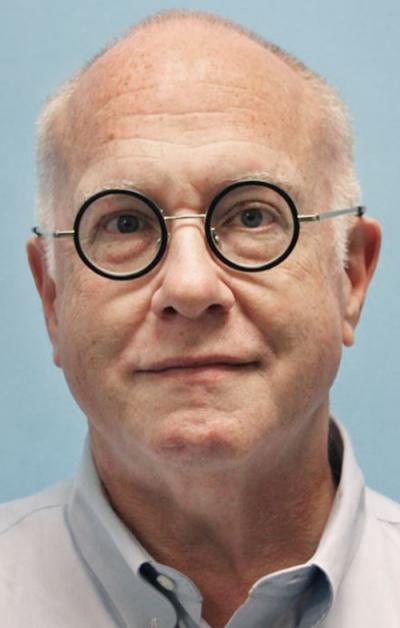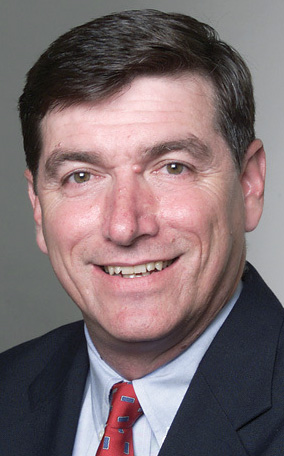

 Vint Cerf has posted comments in support of the pending sale of PIR and the .org registry to Ethos Capital. Vint's Comments . Vint is a respected member of the Internet community, and his comments need close attention and careful assessment. Some of his comments have been discussed here earlier. Other comments, posted here and elsewhere, have either supported the sale or raised questions.
Vint Cerf has posted comments in support of the pending sale of PIR and the .org registry to Ethos Capital. Vint's Comments . Vint is a respected member of the Internet community, and his comments need close attention and careful assessment. Some of his comments have been discussed here earlier. Other comments, posted here and elsewhere, have either supported the sale or raised questions.
 ICANN's Board will meet soon, perhaps even tomorrow, to discuss the dot-org domain sale. It is a pivotal inflection point in the history of Internet governance. When Internet Society (ISOC) was awarded the dot-org domain over ten other bids in 2002, evaluators voiced concerns about their ability to steward it. The report explains: Some on the Committee expressed concern, however, that ISOC's associations extend only to the networking/connectivity community and not to a broader base...
ICANN's Board will meet soon, perhaps even tomorrow, to discuss the dot-org domain sale. It is a pivotal inflection point in the history of Internet governance. When Internet Society (ISOC) was awarded the dot-org domain over ten other bids in 2002, evaluators voiced concerns about their ability to steward it. The report explains: Some on the Committee expressed concern, however, that ISOC's associations extend only to the networking/connectivity community and not to a broader base...
 Many of my friends in the civil-liberties and Internet-law communities have been criticizing the Internet Society's agreement to sell the Public Interest Registry, which administers the .ORG top-level domain. I'm a free-speech guy, so I support their right to raise all these criticisms. But they often ask me directly – knowing that my track record as an Internet civil-libertarian is longer than most – why as a member of the Internet Society (a.k.a. ISOC) board I decided to join the board's unanimous approval of the deal.
Many of my friends in the civil-liberties and Internet-law communities have been criticizing the Internet Society's agreement to sell the Public Interest Registry, which administers the .ORG top-level domain. I'm a free-speech guy, so I support their right to raise all these criticisms. But they often ask me directly – knowing that my track record as an Internet civil-libertarian is longer than most – why as a member of the Internet Society (a.k.a. ISOC) board I decided to join the board's unanimous approval of the deal.
 I watch the controversy over the proposed sale of the .ORG domain with a mixture of bemusement and concern. Some in the ICANN community – mostly those who resent that the Internet ever became commercialized – oppose the sale of the Public Interest Registry to the for-profit company Ethos for $1.1 billion. The basis of their concern is that the domain for non-profits should be in the hands of a non-profit and that the new owners might increase the current $9.93 fee PIR charges for a domain.
I watch the controversy over the proposed sale of the .ORG domain with a mixture of bemusement and concern. Some in the ICANN community – mostly those who resent that the Internet ever became commercialized – oppose the sale of the Public Interest Registry to the for-profit company Ethos for $1.1 billion. The basis of their concern is that the domain for non-profits should be in the hands of a non-profit and that the new owners might increase the current $9.93 fee PIR charges for a domain.
 The beginning of a new decade is always an invitation to have a broader look into the future. What, in the next ten years, will happen in the Internet Governance Ecosystem? Will the 2020s see the usual swinging pendulum between more liberal and more restrictive Internet policies in an interconnected world? Or will we move towards a watershed?
The beginning of a new decade is always an invitation to have a broader look into the future. What, in the next ten years, will happen in the Internet Governance Ecosystem? Will the 2020s see the usual swinging pendulum between more liberal and more restrictive Internet policies in an interconnected world? Or will we move towards a watershed?
 The .ORG sale has placed Maureen Hilyard – ICANN's At-large Chair – squarely between the largest outpouring of individual user sentiment that the Internet community has ever seen, and the people who can do something about it. For At-large, the stakes are high. ICANN has spent years building up a user organization to balance corporate and government interests. At-large could be a key bulwark against the capture of Internet resources by those with capital and political power.
The .ORG sale has placed Maureen Hilyard – ICANN's At-large Chair – squarely between the largest outpouring of individual user sentiment that the Internet community has ever seen, and the people who can do something about it. For At-large, the stakes are high. ICANN has spent years building up a user organization to balance corporate and government interests. At-large could be a key bulwark against the capture of Internet resources by those with capital and political power.
 And so it goes, we are coming to the end of 2019, and that can mean only one thing. It's time for another Domain Name Year in Review. And unlike years past, this year was a real doozy. So without further ado, here are the domain name industry's top 10 biggest stories for 2019... To date, 48 leading registries and registrars have signed onto the "Framework to Address Abuse." The initiative was launched in November 2019, just prior to the ICANN meeting in Montreal.
And so it goes, we are coming to the end of 2019, and that can mean only one thing. It's time for another Domain Name Year in Review. And unlike years past, this year was a real doozy. So without further ado, here are the domain name industry's top 10 biggest stories for 2019... To date, 48 leading registries and registrars have signed onto the "Framework to Address Abuse." The initiative was launched in November 2019, just prior to the ICANN meeting in Montreal.
 Major European legislation, the General Data Protection Regulation, evoked substantial change in the way we deal with the visibility of domain name registration information, and understandably those that use that data to solve problems are concerned about these changes, and some have even called for a U.S. legislative fix. However, a more in-depth look at the issue and the policy-making surrounding it will show that there is, in fact, a process already well underway to address the situation.
Major European legislation, the General Data Protection Regulation, evoked substantial change in the way we deal with the visibility of domain name registration information, and understandably those that use that data to solve problems are concerned about these changes, and some have even called for a U.S. legislative fix. However, a more in-depth look at the issue and the policy-making surrounding it will show that there is, in fact, a process already well underway to address the situation.
 The early designers of the Internet quickly realized that as the number of domain names flourished, there was a need for tracking domain name owners to resolve questions and conflicts that might arise. To that end, they created WHOIS, a public database with the names, phone numbers, email addresses, and mailing addresses of registered domain owners and operators.
The early designers of the Internet quickly realized that as the number of domain names flourished, there was a need for tracking domain name owners to resolve questions and conflicts that might arise. To that end, they created WHOIS, a public database with the names, phone numbers, email addresses, and mailing addresses of registered domain owners and operators.
 This article addresses the issues around the planned sale of the PIR .org registry by ISOC. It examines the history and issues plus looks at several possible paths forward, including PIR becoming a Benefit Corporation (B-Corp) and identifying possible alternative buyers who could retain PIR's non-profit status. Before Tim Bernier-Lee brought the HTML markup language to the Internet, starting in 1989, there were few registered domain names. Access for public registration started in 1986, and by December, there were about five dozen registered .com domain names.
This article addresses the issues around the planned sale of the PIR .org registry by ISOC. It examines the history and issues plus looks at several possible paths forward, including PIR becoming a Benefit Corporation (B-Corp) and identifying possible alternative buyers who could retain PIR's non-profit status. Before Tim Bernier-Lee brought the HTML markup language to the Internet, starting in 1989, there were few registered domain names. Access for public registration started in 1986, and by December, there were about five dozen registered .com domain names.